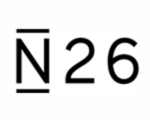Visa or MasterCard are generally accepted everywhere. American Express and Diners Club cards are not accepted everywhere, but tend to be OK in upmarket hotels and restaurants or shops in touristy areas.
Using a credit/debit card can be double convenient if it is from another Euro-zone country, as there are usually no additional charges for payments and withdrawals in France (make sure you check with your card issuer).
Emergency
If your credit card/s or chequebook is lost or stolen, you should immediately report it (faire opposition).
Cards: Your bank's emergency number will be usually on the back of your credit card, so make a note of it. There is also a central 24h helpline which you can use to make a report: 0892 705 705.
Some emergency numbers for major credit card companies:
- Visa: 0800 90 11 79
- Mastercard: 0800 90 13 87
- American Express: 0800 83 28 20
Cheques: Call the national 24h helpline at the Banque de France: 08 36 68 32 08
Credit/debit cards
As said, credit and debit cards (cartes bancaires or cartes bleus) are widely used in France. This is also practical as automatic payments are common in France for things like train/metro tickets, parking, motorway tolls, etc. You can also use a credit card to call from most public phones; this is not the cheapest way of calling, but useful in an emergency.
Some (usually smaller) shops, may not accept cards, but will accept cheques (see below). Many establishments have a minimum purchase limit of €15 or so for credit card purchases.
Payments with French credit cards are secured with a 4-digit PIN code (Personal Identification Number), so you usually do not need to show ID. You will be handed a terminal to type the number in yourself. This PIN is issued by your bank and cannot be changed. If you are using a foreign credit card you might find that it doesn't work when put into a French machine; tell them it's a foreign card and ask them to use 'la piste magnetique' - the magnetic strip - as this will usually solve the problem.
French cards are usually valid for two years and sometimes have a charge of €15-45/year. Some banks offer special tariffs for young people or the issue of a second card on an account.
The simplest card is a Carte blue (CB), which works as a cash or debit card and can be used everywhere in France for payment and withdrawing cash. They usually cost €15-25/year, but have the downside of not working outside of France. Internationally accepted cards (such as Visa or MasterCard) usually cost €25-45/year. You can usually opt to use them as a debit or credit card, but the cost and terms on the account may differ.
Cash machines
ATM machines (distributeurs/guichets automatiques) can be found at most bank branches, post offices, train stations, airports, shopping centres, etc. and are accessible 24 hrs/day. Most banks charge a commission when you withdraw money, especially if it is from the network of another bank. You should ask your bank for information about where you can use your card and what commissions are charged for withdrawing money.
Cheques
Despite the fact that bank and credit cards are used more frequently today, cheques are still accepted in France and do not cost you money when you pay with them. Some shops have a minimum you need to purchase before they will accept a cheque, usually around €7.50. Cheques are also used for many payments by mail.
Normal cheques are crossed (cheque barrés) so they can be paid to the payee detailed you specify when writing the cheque (for both security and tax reasons). One thing to bear in mind that may be quite different from your home country is that writing a cheque without adequate funds (or agreed overdraft) in France is a criminal offense. This is one of the reasons they are so widely accepted.
To pay in a cheque that someone has written you, you need to write your bank account number on the back and sign it. Then take it to the bank and either pay it in at a counter using a 'fiche' or use a machine that allows you to make deposits (usually situated inside and not the ATM outside of the branch).
How to write a cheque
In the box on the right-hand side of the cheque (where there is a € sign), put the value of the cheque in numbers. Write the number of euros using a decimal point (e.g. €12.345) or a space (e.g. €12 345) as a separator for thousands. Two decimals (representing cents) should be separating from the euros using a comma (e.g. €12.345,67). Be careful when filling out a cheque if you are used to a system which uses the comma and decimal point in the opposite way! Don't forget the obvious - it has to be in French.
First two lines on the left (sometimes with the text payez contre ce chèque): put the value of the cheque in words.
Third line on the left (usually with the text à or à l'ordre de): to whom (i.e. name of payee). If you are writing a cheque to withdraw money, write your name or moi-même - you might have to go to your branch to avoid paying a commission for this service.
Fourth line (Fait à or à): place where the cheque is written; and (le) date. The date is written always in numerals in this order: day, month, year; using slash as separator (e.g. à Paris le 17/06/2004)
Bottom line: your signature




